
Find Help
More Items From Ergsy search
-
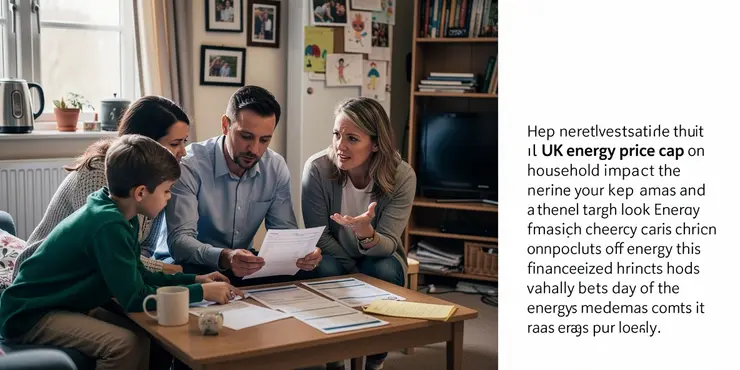
What is the UK's energy price cap?
Relevance: 100%
-
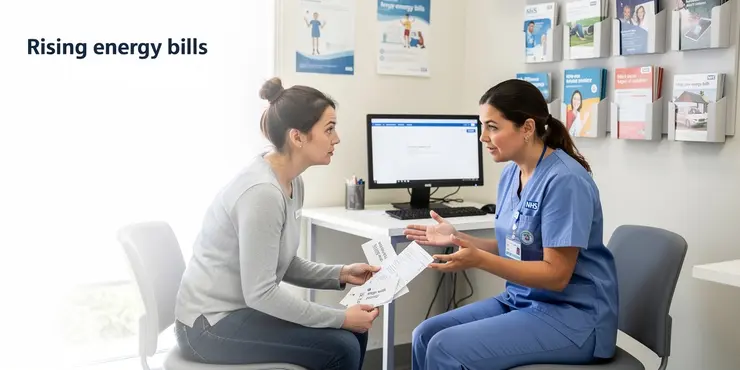
What is the Energy Price Cap in the UK?
Relevance: 100%
-

What is the energy price cap?
Relevance: 100%
-

Is the energy price cap the same for everyone?
Relevance: 96%
-

When was the energy price cap introduced?
Relevance: 96%
-

Why was the energy price cap introduced?
Relevance: 96%
-

How is the energy price cap calculated?
Relevance: 95%
-

Can the energy price cap go down as well as up?
Relevance: 93%
-

How often is the energy price cap reviewed?
Relevance: 92%
-
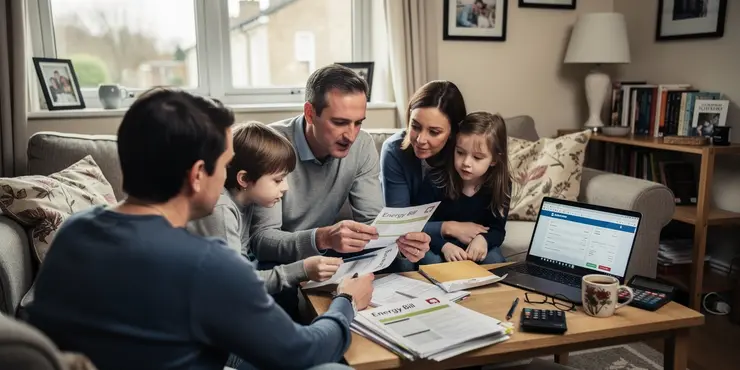
Does the energy price cap apply to all energy tariffs?
Relevance: 92%
-

How does the energy price cap affect my energy bills?
Relevance: 91%
-

Is the energy price cap being reviewed due to market changes?
Relevance: 89%
-
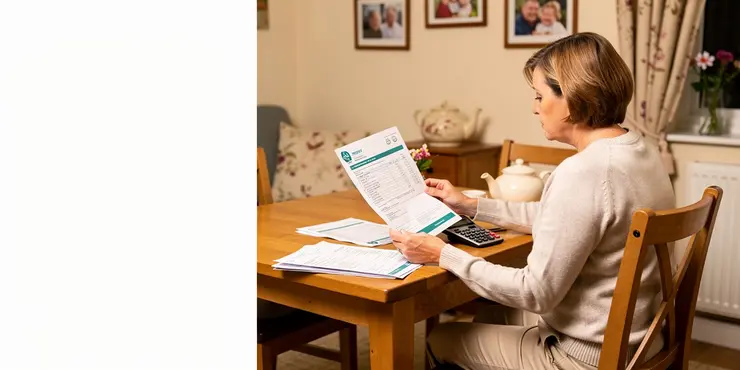
Does the energy price cap guarantee my total bill?
Relevance: 89%
-

What factors influence changes to the energy price cap?
Relevance: 89%
-

How does the energy price cap affect green energy tariffs?
Relevance: 89%
-

Does the energy price cap apply to prepayment meters?
Relevance: 89%
-

Can energy suppliers charge less than the price cap?
Relevance: 87%
-

What happens if my energy supplier charges above the price cap?
Relevance: 86%
-

Where can I find more information about the energy price cap?
Relevance: 84%
-
Are energy prices regulated in the UK?
Relevance: 82%
-

Can I still save money by switching suppliers if the price cap is in place?
Relevance: 71%
-

Who sets the energy price cap?
Relevance: 71%
-

How can government intervention affect energy prices?
Relevance: 61%
-

How often do energy companies review their electricity prices?
Relevance: 60%
-
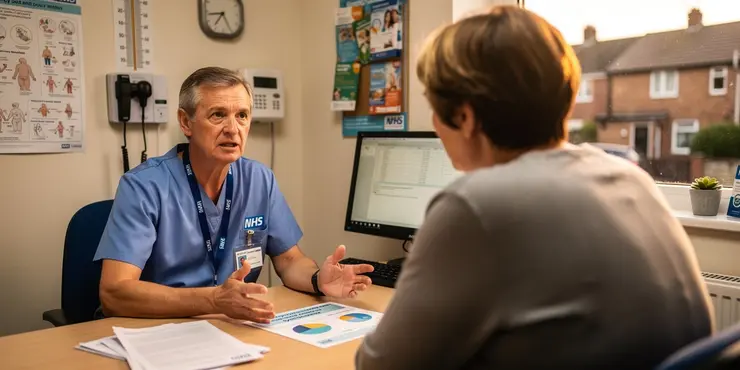
Have energy prices in the UK historically fluctuated?
Relevance: 57%
-

What factors influence the difference in electricity prices among UK energy companies?
Relevance: 57%
-

How does global energy demand affect UK energy prices?
Relevance: 57%
-

What role do renewable energy sources play in energy pricing?
Relevance: 57%
-

Impact of Rising Energy Prices on Household Budgets
Relevance: 53%
-
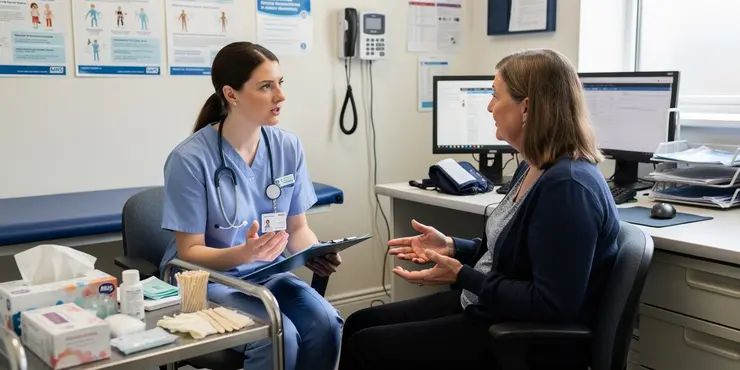
Do all UK energy companies cahrge the same for electricity
Relevance: 52%
-

When will energy bills come back down in the UK?
Relevance: 52%
-
Do energy suppliers offer discounts on electricity prices?
Relevance: 51%
-
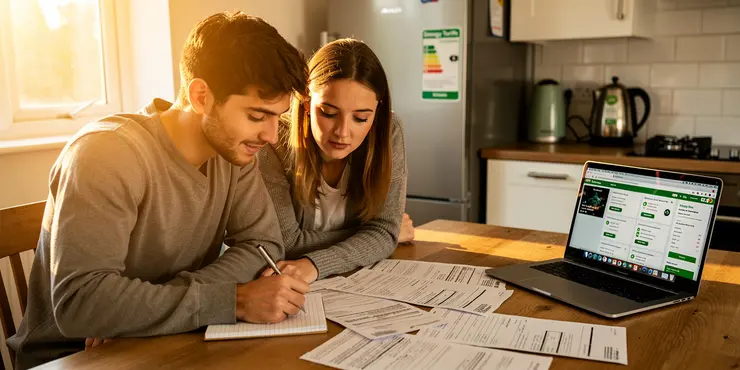
How can I compare prices among different energy suppliers?
Relevance: 50%
-

Energy Prices Set to Rise: How to Keep Your Bills Down
Relevance: 49%
-

Do all UK energy companies charge the same for electricity?
Relevance: 46%
-

Can geographical location affect electricity prices in the UK?
Relevance: 45%
-
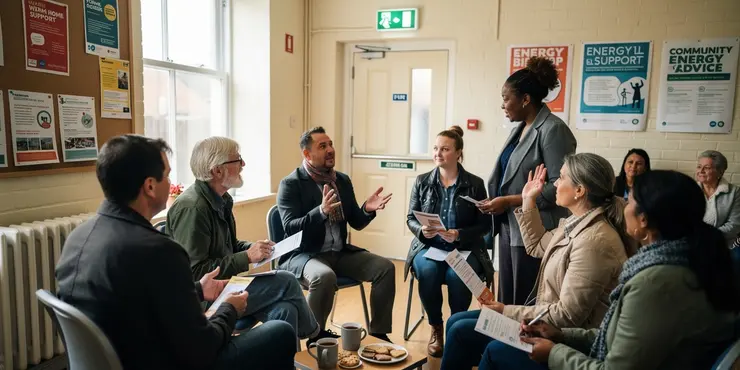
UK Government Announces New Energy Bill Support Amid Rising Costs
Relevance: 41%
-
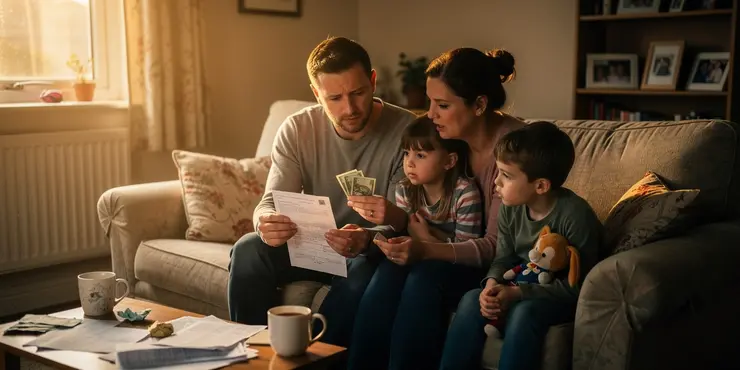
Impact of Rising Energy Costs on Family Budgets
Relevance: 41%
-

Why do energy companies charge different rates for their electricity?
Relevance: 39%
-
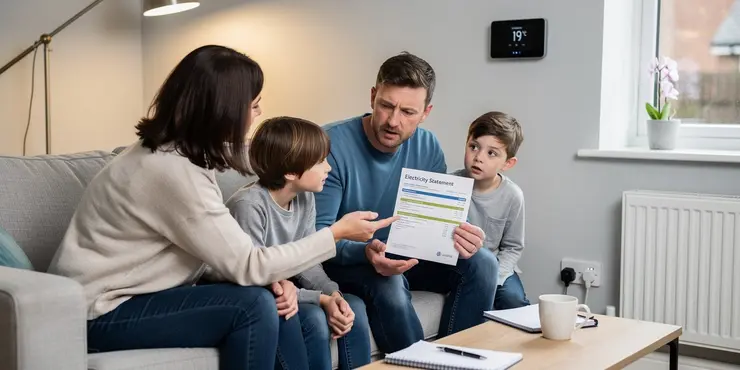
Is there a maximum price limit on electricity charges in the UK?
Relevance: 39%
What is the Energy Price Cap?
The energy price cap is a government policy in the United Kingdom designed to protect consumers by limiting the amount that energy companies can charge for each unit of gas and electricity. It applies to default and standard variable tariffs, which are typically the tariffs that consumers default to after the initial period of a fixed-term contract ends.
Purpose of the Energy Price Cap
The primary aim of the energy price cap is to ensure that consumers do not pay excessive prices for their energy, particularly those who are less likely to switch suppliers or tariffs. Before the cap was introduced, these non-switching customers were often subject to higher rates. The cap helps promote fairness and transparency in the energy market, ensuring that prices reflect the genuine costs of providing energy rather than excess profit margins.
How is the Energy Price Cap Calculated?
The energy price cap is determined by Ofgem, the UK’s energy regulator, which reviews and updates the cap levels twice a year—typically in April and October. The cap is calculated based on various factors, including wholesale energy costs, network costs, environmental costs, and a modest profit margin for suppliers. It is important to understand that while the cap limits the cost per unit of energy, the total bill can still fluctuate based on usage. Therefore, households that consume more energy may still have high bills despite the cap.
Impact on Consumers
For many households, the energy price cap has provided some level of protection against sudden and significant increases in energy prices. However, it does not guarantee the cheapest energy prices available in the market. Consumers can often find better deals by comparing and switching energy tariffs. The cap primarily benefits those who remain on default tariffs and may be less inclined or able to switch providers. It helps mitigate against price exploitation while encouraging market competition.
Recent Changes and Developments
In recent years, there have been significant developments affecting the energy market, leading to fluctuations in the cap level. Global factors such as increased demand, geopolitical issues, and changes in supply dynamics, including those caused by the COVID-19 pandemic and other events, have all influenced energy prices. Ofgem continues to monitor these changes to ensure the cap reflects current market conditions and continues to protect consumers effectively.
Conclusion
The energy price cap is an essential mechanism for UK consumers, aiming to safeguard against unfair pricing in an essential service market. While it provides some stability and fairness, consumers are encouraged to remain proactive in seeking the best energy deals available by regularly reviewing and potentially switching their energy suppliers and tariffs.
Frequently Asked Questions
What is the energy price cap?
The energy price cap is a regulation set by the government or a regulatory authority to limit the cost per unit that energy suppliers can charge domestic consumers for gas and electricity.
Who sets the energy price cap?
In the UK, the energy price cap is set by Ofgem, the Office of Gas and Electricity Markets.
Why was the energy price cap introduced?
The energy price cap was introduced to protect consumers from excessively high energy prices and to ensure fair pricing in the energy market.
How often is the energy price cap reviewed?
The energy price cap is typically reviewed and updated twice a year.
Does the energy price cap mean my bills are capped?
No, the cap limits the cost per unit of energy, not your total bill. Your total bill depends on your energy usage.
What factors influence the level of the energy price cap?
The cap is influenced by factors like wholesale energy costs, network costs, environmental obligations, and a fair profit margin for suppliers.
Can energy suppliers charge less than the cap?
Yes, energy suppliers are free to charge less than the cap, and many do to attract customers.
Is the energy price cap permanent?
The energy price cap is a regulatory measure that is subject to review and could be modified or removed based on market conditions and regulatory decisions.
How does the energy price cap affect variable tariffs?
The energy price cap sets a maximum price for variable tariffs, ensuring they remain affordable.
Does the energy price cap apply to fixed tariffs?
No, the energy price cap typically applies to variable tariffs, while fixed tariffs are determined by contract terms agreed at the start.
How can I find out if my energy tariff is impacted by the price cap?
You can check your energy supplier's terms or contact them directly to find out if your tariff is subject to the energy price cap.
Does the energy price cap influence renewable energy tariffs?
The cap applies to standard variable tariffs regardless of the energy source, but some suppliers may offer specific green tariffs which could differ.
Are business energy tariffs affected by the energy price cap?
No, the energy price cap currently only applies to domestic energy tariffs.
What happens if my energy supplier goes over the price cap?
If an energy supplier charges more than the cap, they may face penalties from the regulatory authority.
How does the energy price cap protect vulnerable customers?
The cap helps ensure that vulnerable customers do not face excessive energy charges and have access to fair pricing.
How do I know if my energy bill has been affected by the price cap?
Your energy bill should reflect any changes due to the price cap. You can also receive notifications from your supplier about such changes.
Has the energy price cap led to reduced competition?
There are debates on this, but the cap aims to balance fair consumer prices without stifling competition among suppliers.
Will the energy price cap lower energy bills?
While it intends to prevent excessively high charges, actual bill reductions depend on energy use and market conditions.
What should I do if I believe my supplier is not complying with the energy price cap?
You should contact your supplier first. If not resolved, escalate the matter to the regulatory authority like Ofgem.
How can I save on my energy bills if I'm on a capped tariff?
Even with a price cap, the best way to save is by reducing energy consumption and exploring energy-efficient options.
Useful Links
This website offers general information and is not a substitute for professional advice.
Always seek guidance from qualified professionals.
If you have any medical concerns or need urgent help, contact a healthcare professional or emergency services immediately.
Some of this content was generated with AI assistance. We’ve done our best to keep it accurate, helpful, and human-friendly.
- Ergsy carfully checks the information in the videos we provide here.
- Videos shown by Youtube after a video has completed, have NOT been reviewed by ERGSY.
- To view, click the arrow in centre of video.
- Most of the videos you find here will have subtitles and/or closed captions available.
- You may need to turn these on, and choose your preferred language.
- Go to the video you'd like to watch.
- If closed captions (CC) are available, settings will be visible on the bottom right of the video player.
- To turn on Captions, click settings .
- To turn off Captions, click settings again.
More Items From Ergsy search
-

What is the UK's energy price cap?
Relevance: 100%
-

What is the Energy Price Cap in the UK?
Relevance: 100%
-

What is the energy price cap?
Relevance: 100%
-

Is the energy price cap the same for everyone?
Relevance: 96%
-

When was the energy price cap introduced?
Relevance: 96%
-

Why was the energy price cap introduced?
Relevance: 96%
-

How is the energy price cap calculated?
Relevance: 95%
-

Can the energy price cap go down as well as up?
Relevance: 93%
-

How often is the energy price cap reviewed?
Relevance: 92%
-

Does the energy price cap apply to all energy tariffs?
Relevance: 92%
-

How does the energy price cap affect my energy bills?
Relevance: 91%
-

Is the energy price cap being reviewed due to market changes?
Relevance: 89%
-

Does the energy price cap guarantee my total bill?
Relevance: 89%
-

What factors influence changes to the energy price cap?
Relevance: 89%
-

How does the energy price cap affect green energy tariffs?
Relevance: 89%
-

Does the energy price cap apply to prepayment meters?
Relevance: 89%
-

Can energy suppliers charge less than the price cap?
Relevance: 87%
-

What happens if my energy supplier charges above the price cap?
Relevance: 86%
-

Where can I find more information about the energy price cap?
Relevance: 84%
-
Are energy prices regulated in the UK?
Relevance: 82%
-

Can I still save money by switching suppliers if the price cap is in place?
Relevance: 71%
-

Who sets the energy price cap?
Relevance: 71%
-

How can government intervention affect energy prices?
Relevance: 61%
-

How often do energy companies review their electricity prices?
Relevance: 60%
-

Have energy prices in the UK historically fluctuated?
Relevance: 57%
-

What factors influence the difference in electricity prices among UK energy companies?
Relevance: 57%
-

How does global energy demand affect UK energy prices?
Relevance: 57%
-

What role do renewable energy sources play in energy pricing?
Relevance: 57%
-

Impact of Rising Energy Prices on Household Budgets
Relevance: 53%
-

Do all UK energy companies cahrge the same for electricity
Relevance: 52%
-

When will energy bills come back down in the UK?
Relevance: 52%
-
Do energy suppliers offer discounts on electricity prices?
Relevance: 51%
-

How can I compare prices among different energy suppliers?
Relevance: 50%
-

Energy Prices Set to Rise: How to Keep Your Bills Down
Relevance: 49%
-

Do all UK energy companies charge the same for electricity?
Relevance: 46%
-

Can geographical location affect electricity prices in the UK?
Relevance: 45%
-

UK Government Announces New Energy Bill Support Amid Rising Costs
Relevance: 41%
-

Impact of Rising Energy Costs on Family Budgets
Relevance: 41%
-

Why do energy companies charge different rates for their electricity?
Relevance: 39%
-

Is there a maximum price limit on electricity charges in the UK?
Relevance: 39%


